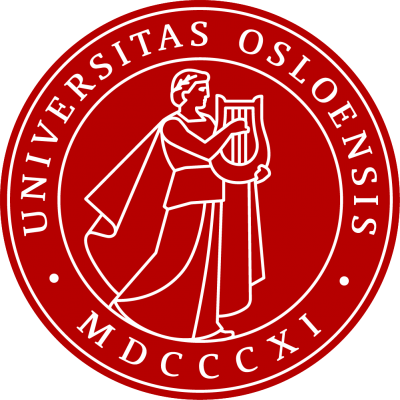Tutorials for SmartGridComm 2024
- Cutting-edge enablers for a sustainable evolution towards 5G and beyond networks (supplementary information)
Daniela Renga, Politecnico di Torino, Italy.
Decription
Focusing on the sustainability concerns arising in the evolution towards 5G and beyond radio access networks, this tutorial aims at (i) discussing and yielding relevant insights about the novelties introduced in traditional energy efficiency oriented solutions and energy-aware resource management approaches, in order to revisit them tailoring the specificities of the 5G scenarios, and (ii) offering an extensive overview of the most innovative and promising technologies and business models that enable the deployment of sustainable and resilient 5G networks, promoting a sustainable and feasible transition towards the 6G era.Furthermore, various use cases for the different proposed enablers and solutions are presented, discussing the entailed specific challenges and the open issues that will definitely steer the research directions in the next years.
Overview of content
1. Sustainability challenges in the deployment of 5G and beyond networks
- Densification of Radio Access Networks (RANs): beyond the energy efficiency paradigm
- Broadening the horizon in sustainability for RANs
- A novel partnership between Mobile Operators (MOs) and the Smart Grid
2. Innovation in tradition for energy efficient Radio Access Network
- Renewable Energy in 5G frameworks: challenges and opportunities
- Tailoring the implementation of Resource on Demand to 5G scenarios leveraging their specific features
- Novel keyrole of Mobile Operators as prosumers interacting with the Smart Grid
3. Leveraging brand-new technologies to deploy sustainable and resilient RANs
- How can Non-Terrestrial Networks contribute to a sustainable deployment of 5G and beyond networks?
- New business models to enhance sustainabile and resilient mobile networks
- Exploring novel cooperation models between MOs and the Smart Grid to trade off conflicting goals
4. Open issues in the transition towards a sustainable 5G and beyond era
- Distributed Control Strategies for Resilient Power Grid Operations: Advancing SmartGrid Resilience in the Era of Decentralization (supplementary information)
Ahmad Al-Tawaha, Virginia Tech, USA.
Elson Cibaku, New Jersey Institute of Technology, USA.
Ming Jin, Virginia Tech, USA.
SangWoo Park, New Jersey Institute of Technology, USA.
Javad Lavaei, UC Berkeley, USA.
Description
This tutorial addresses the pressing challenge of maintaining grid stability, reliability, and efficiency in the face of the ongoing energy transition. By exploring cutting-edge research and practical applications of distributed control.
Overview of content
1. Introduction to Distributed Control in Power Systems
- Challenges in power system control and operation
- Distributed control for power systems
- Overview of distributed control methods
2. Foundations and Architectures for Distributed Control
- Centralized, decentralized, and hierarchical control architectures
- Graph theory and multi-agent systems
- Consensus algorithms and cooperative control
- Optimization-based methods
3. Data-Driven and Learning-Based Approaches
- Machine learning for power system control
- Reinforcement learning
- Transfer learning and meta-learning
- Bayesian optimization and Gaussian processes
- Case studies: Demand response, energy trading, and DER coordination
4. Distributed Control for Resilience and Security
- Resilience in power systems
- Secure and privacy-preserving distributed control
- Game theory and adversarial learning
- Applications: Microgrid islanding, restoration, and cybersecurity
5. Benchmarks, Challenges, and Future Directions
- Benchmark models and simulation tools for distributed control in power systems.
- Scalability and resilience of distributed control systems
- Privacy considerations in distributed learning and control
- Safe Reinforcement Learning for Smart Grid Control and Operations (supplementary information)
Ming Jin, Virginia Tech, USA.
Shangding Gu, UC Berkeley, USA.
Vanshaj Khattar, Virginia Tech.
Description
Power systems are complex cyber-physical systems requiring sophisticated control and decision-making capabilities for reliable, efficient, and secure operations. Ensuring safety is critical, given the potential for widespread disruptions if operational constraints are violated in this critical infrastructure. Reinforcement learning (RL) presents a promising data-driven approach to developing intelligent control policies, but deploying RL necessitates new methods that can respect safety constraints through safe exploration, constrained optimization, and stability guarantees.
Overview of content
1. Introduction to Safe RL
2. Model-based Safe RL for Power Systems
- Primal-Dual Methods, Trust Region Methods, Control-theoretic Methods, Gaussian Process Methods
- Case studies: Frequency regulation, volt-var optimization
3. Model-free methods for power systems
- Constrained Policy Optimization (CPO), Projection-based CPO (PCPO)
- First Order Constrained Optimization (FOCOPS)
- Lyapunov-based Methods, Gaussian Process (GP) Methods
- Case studies: Energy trading, EV charging, microgrid control
4. Safe multi-agent RL for power systems
- Safe MARL Formulation
- Methods: MACPO, MAPPO-Lagrangian, MARL, Safe Dec-PG, Robust MARL, LTL methods
- Applications: Distributed energy resources coordination
5. Benchmarks, Challenges, and Open Problems
- Smart grid simulation environments
- Handling high-dimensional data
- Human-in-the-loop learning
- Scalability and communication constraints
Cyber-physical power system security: Modeling, attack detection, assessment and testing platforms, and digital twins’ solutions(Cancelled)






